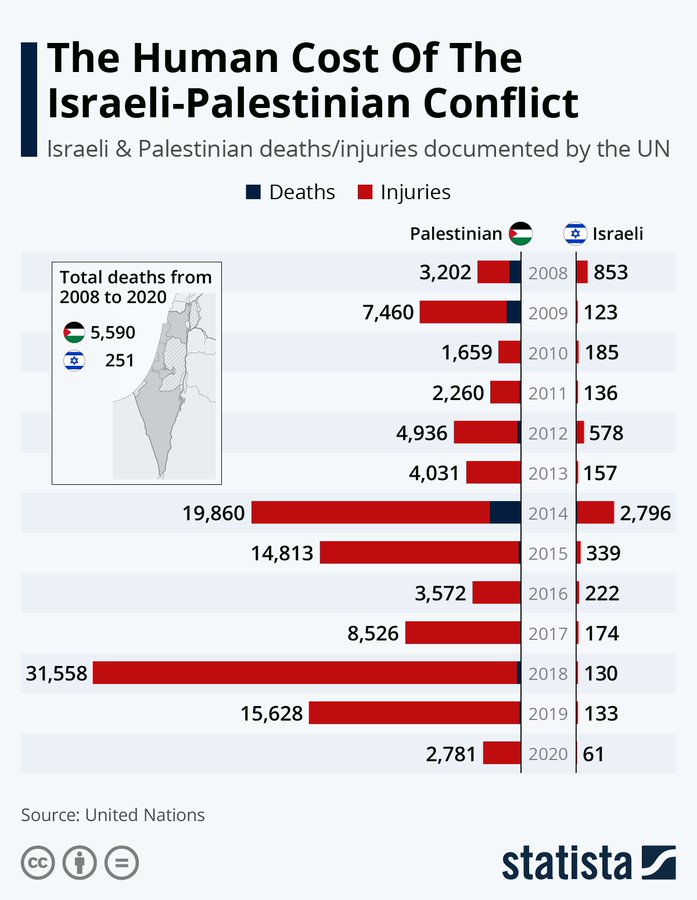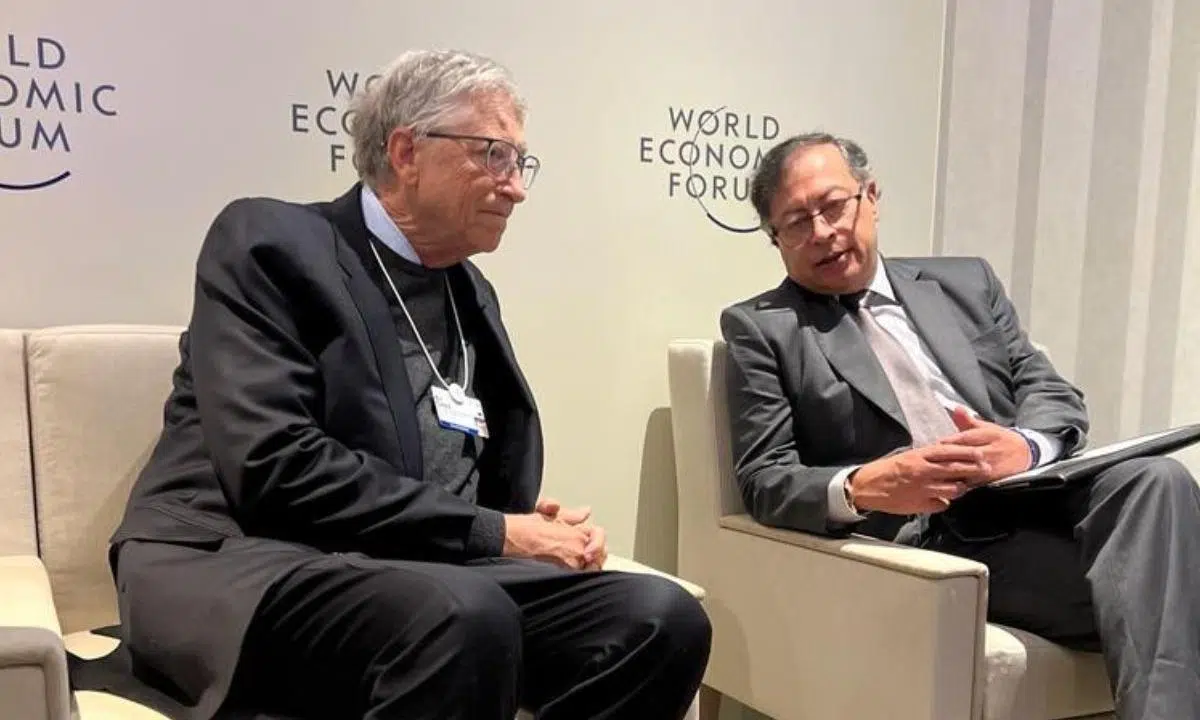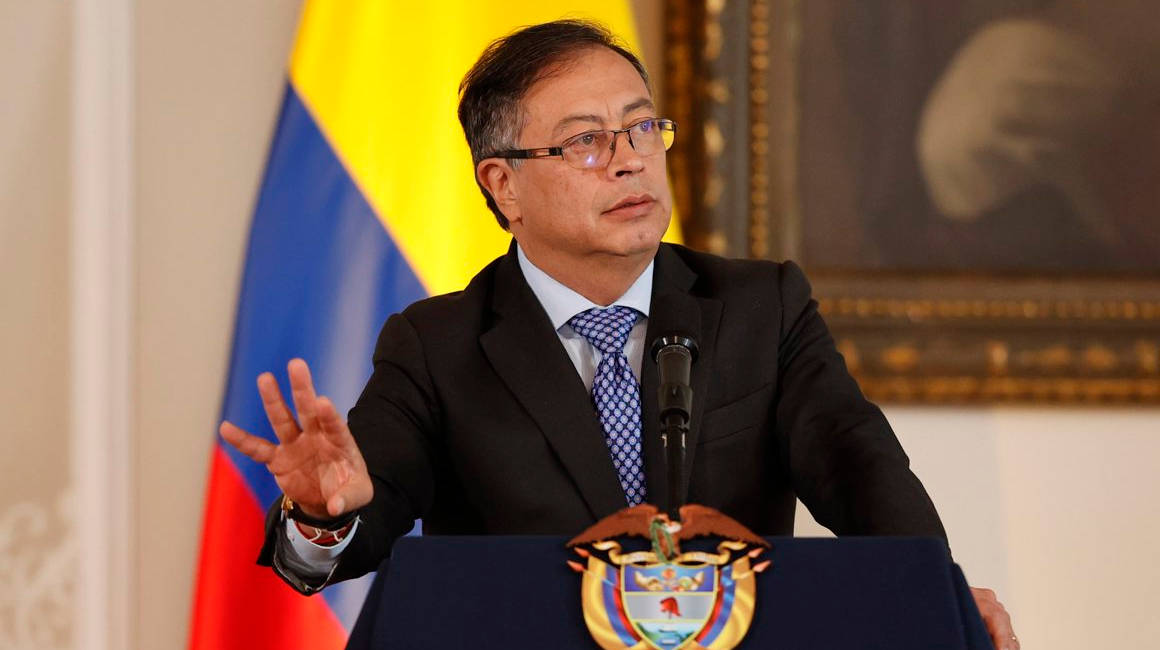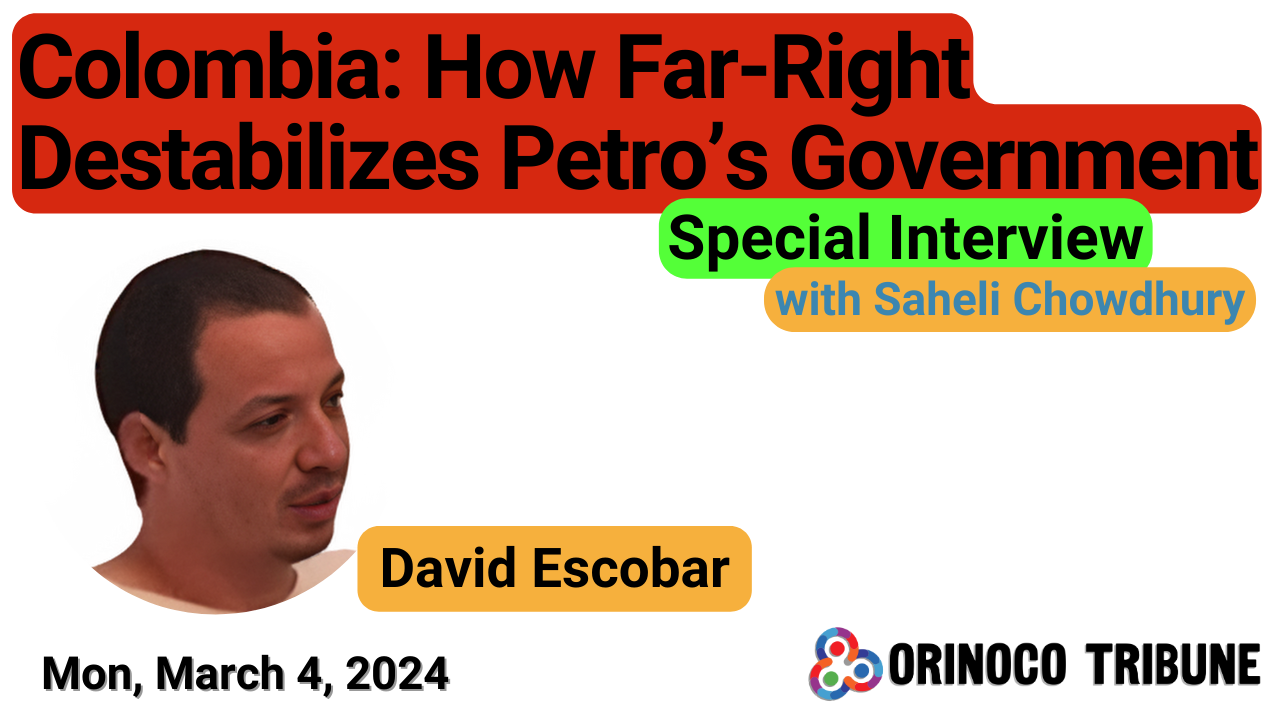The historic ceasefire between the government and the ELN coincided with a fresh destabilization campaign against the Gustavo Petro government
August 05, 2023 by Peoples Dispatch
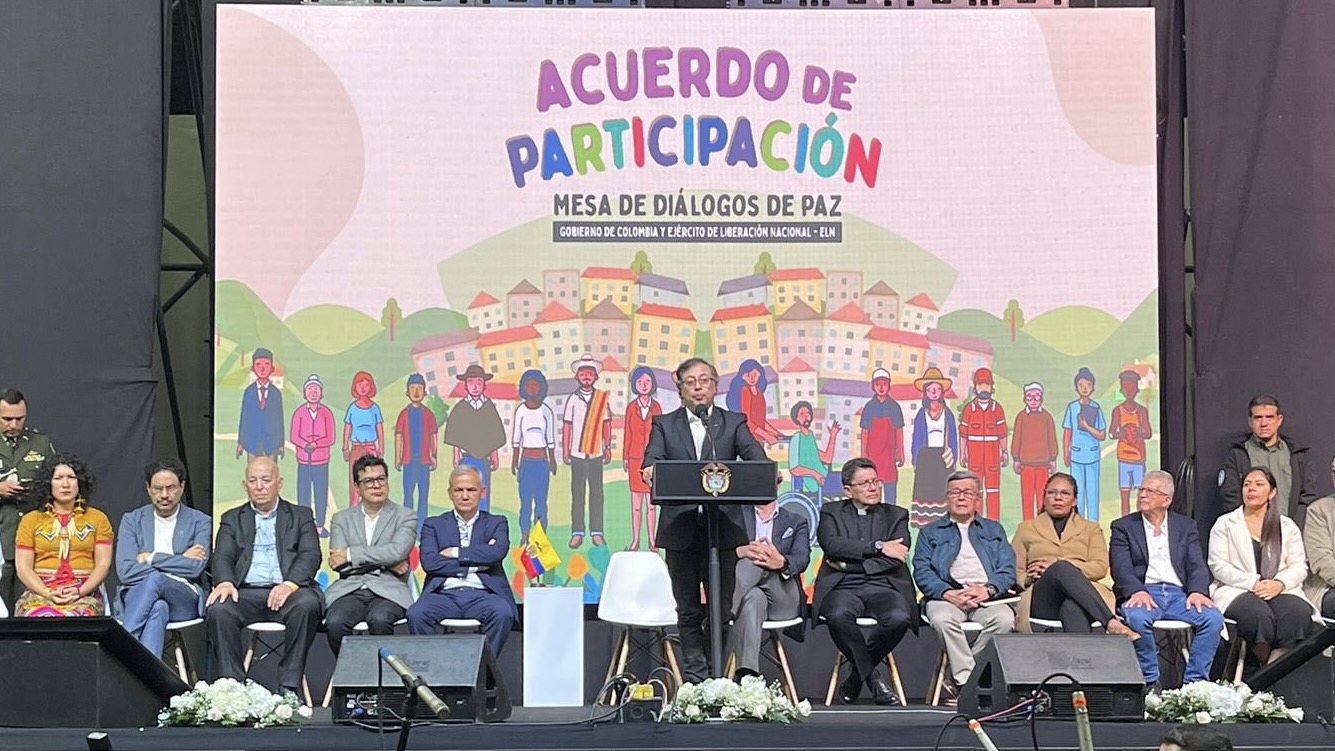
Members of the peace delegations and representatives of social movements participated in the launch of the National Participation Committee in Bogotá on August 3.
The Colombian government and the National Liberation Army (ELN), the country’s largest left-wing guerrilla group, on Thursday, August 3, began a 180-day bilateral ceasefire. The truce will remain in force until January 29, 2024. The historic step was agreed upon on June 9 during the third round of peace negotiations between the two sides in Havana, Cuba.
The development marked the most concrete progress to date for leftist president Gustavo Petro and his government’s plan to bring “total peace” to the country and end over 60 years of internal armed conflict, during which more than 450,000 people were killed.
During an event held in Corferias, Bogotá, the National Participation Committee, made up of 81 delegates from 30 different social movements, trade unions, human rights organizations, victims’ movements, business organizations, among other sectors from all over the country, was established.
The Committee will be responsible for defining the methodology to ensure the participation of Colombian society in making proposals in the peace process. It will also be in charge of bringing the suggestions and requests of the civil society to eradicate violence to the negotiation table. Above all the committee seeks to help achieve a successful peace process that is accompanied by transformations in society.
The event was attended by President Gustavo Petro, the head of government delegation Otty Patiño, the head of the ELN delegation Pablo Beltrán, the high commissioner for peace Danilo Rueda, Senator Iván Cepeda, and other members of the peace delegations. The event was also attended by several government ministers and officials, representatives of the UN, representatives from the Catholic Church and guarantor countries, as well as around 2,000 citizens from regions across the country, who have historically suffered the most from the conflict.
President Petro, in his speech, focused on the need for peace in the country. He analyzed the armed conflict and insisted on the need to value life above death. He stressed that a true revolution implies betting on peace, that is, on life, without the use of arms.
“Today is about life or death, no revolutionary can be on the side of death…, anyone who really wants to transform society in today’s world has to be on the side of life. “Being on the side of life is the revolution,” said Petro.
For his part, Beltrán highlighted the importance of the National Participation Committee in bringing forward proposals, solutions, alternatives and changes that the country requires and that are fundamental for the advancement of the peace process.
“May the people make a diagnosis, but also say what must be done! May the elites join the change!,” said Beltrán.
Social organizations hold national mobilization for Life, Peace and Popular Democracy
The ceasefire began a day after thousands of citizens and members of various social organizations took to the streets in different regions of the country demanding dismantling of paramilitary groups, end to persecution of social activists and movements, and real transformations that guarantee life, peace, justice and democracy.
On Wednesday, August 2, under the banner of “For Life, Peace and Popular Democracy,” thousands of people mobilized against violence and in defense of human rights in Bogotá, Cali, Medellín, Bucaramanga, Tadó, and Casanare.
The social organizations condemned that the paramilitaries continue to expand throughout the country and attack the people who fight for their rights and territories. Several social leaders denounced that the police and military forces continue to work with various paramilitary groups. “The existence and strength of paramilitaries is not possible without the systematic help of the public force,” argued social organizations such as the Congreso de los Pueblos, the National Agrarian Coordinator (CNA) and the Unión Sindical Obrera (USO). They also rejected the displacement and confinement of communities in regions hit by paramilitarism and demanded concrete responses from the government.
Likewise, the members of Afro-descendant and Indigenous communities condemned the Attorney General’s Office as the guarantor of impunity in the country and for allowing paramilitaries to commit crimes without being tried. They denounced the racism faced by the communities and explained that their cases are never “prioritized” and remain partially investigated and without conclusions.
The organizations also criticized the public petroleum company Ecopetrol as a part of the criminal political network, operated by private businessmen and members of various previous governments responsible for paramilitarism and corruption, that finances paramilitary actions in the country.
“It has lent itself to the looting of natural resources in order to enrich a few “good people” and also had agreements to deliver its products directly to the paramilitaries through an “agreed robbery” that gave them more than 85 billion pesos, only between 2000 and 2005,” denounced the organizations.
Last week, an investigation revealed a millionaire oil theft within Ecopetrol, carried out by 17 businessmen and members of former government officials with the help of paramilitary groups.
Right-wing intensifies destabilization campaign against the Petro government
The historic ceasefire between the national government and the ELN rebels began just as the country’s right-wing forces launched a new destabilization campaign against the Petro government following the arrest of the president’s son Nicolás Petro in an alleged money laundering case. Several right-wing opposition leaders and legislators are demanding Petro’s resignation.
Last week, on July 29, the Attorney General’s Office arrested Nicolás Petro, accusing him of the alleged crimes of money laundering, illicit enrichment and data breach. The arrest came after the publication of an interview given by Day Vásquez, ex-wife of Nicolás Petro, to Semana magazine, in which she alleged that her ex-partner would have received large sums of money from questionable sources. She mentioned that about 600 million pesos came from former drug trafficker Santander Lopesierra, alias “Marlboro Man”, and another 400 million pesos from the son of a controversial figure known as “Turco Hilsaca”. She also alleged that the money was supposedly earmarked for Gustavo Petro’s presidential campaign, but instead was used by Nicolás to purchase a luxurious home in Barranquilla.
This Wednesday, on August 3, in the first hearing before the Attorney General’s Office, Nicolás Petro admitted having received money from irregular sources, and that a part of it was allegedly used for his father’s 2022 presidential campaign.
Following the statement from the Attorney General’s Office, Vicky Dávila, director of the weekly magazine Semana that has been critical of Petro since he was a candidate, claimed that Nicolás Petro told the Attorney General’s Office that Gustavo Petro was aware of the irregular money being used in his campaign.
President Petro immediately reacted to the claim, assuring that it was a lie. “This is a lie. But in order to spread it, now several networks put this statement as some sources of the prosecutor’s office, this is how they spread the lie,” said Petro in a tweet. “To this day there is not a single sentence or audio of months of conversations recorded in the audios of my son and his ex-wife or in the videos that the author has of all my private meetings of the pre-campaign and campaign intercepted by government agencies that confirms this lie,” he added.
During a public event on August 3, Petro once again rejected the accusations. “Someone wrote today that my son had said that I knew that illegal money had entered my campaign. This statement can be analyzed in several ways and since it was not said by a judge, I am going to analyze what he said. He has a subliminal instinct in what he said and obviously if that were true, this President would have to leave today. So I have to tell that person, don’t keep telling lies. My son didn’t say that, and he didn’t say that for a basic reason, I have told my children: never commit a crime,” said the president.
“This is not the first time that they have tried to use the family scars, some will heal, others may never heal, they have tried to use all the weaknesses and errors to open the way to the collapse of the first popular government in Colombia,” Petro added.
To those demanding his resignation, Petro said “It is to the people that I must answer, be sure that this government is ending by popular mandate. There is no one who can end this government but the people themselves, and the people themselves gave an order by majority at the ballot box, we will continue until the year 2026.”
https://peoplesdispatch.org/2023/08/05/ ... -campaign/
*******
Colombia adds 100 social leaders assassinated in 2023
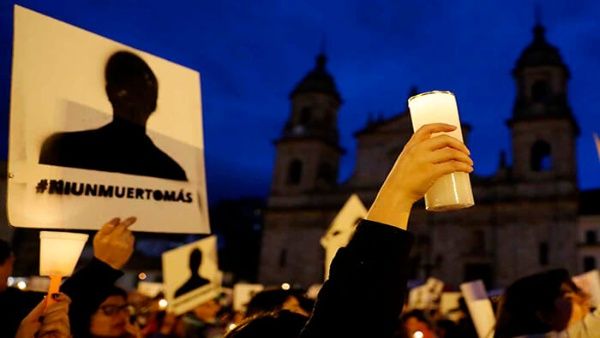
According to Indepaz, since the signing of the peace agreement in August 2016, around 1,514 leaders and social defenders have been assassinated in the South American country. | Photo: www.dejusticia.org
Published 5 August 2023
The senator for the MAIS Movement, Aida Quilcué, demanded urgent measures from President Gustavo Petro to protect the lives of social leaders.
At least 100 social leaders have been assassinated in Colombia, after confirming on Friday the assassination of the social and indigenous leader, Luis Eduardo Timana, in the Pradera municipality of the Valle del Cauca department.
According to the Institute for Development and Peace (Indepaz), the indigenous leader of the Nasa people was assassinated by unknown persons on his way to his home, located in the rural area of the municipality.
The indigenous senator for the Movimiento Alternativo Indígena y Social (MAIS), Aida Quilcué, regretted the death of Tinama on her social networks, while demanding that Colombian President Gustavo Petro take urgent and effective measures to protect the lives of social leaders. .
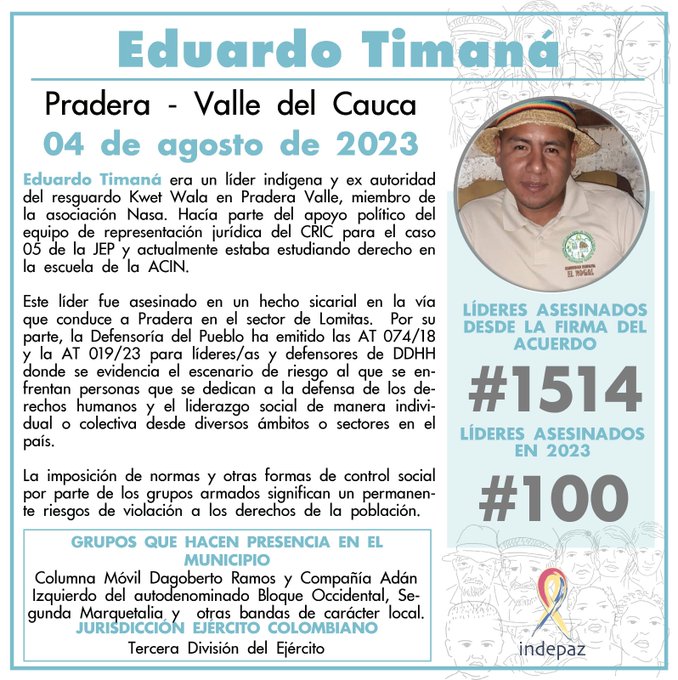
The social leader was a candidate for the Pradera municipal council for the Historical Pact and was part of the political support of the legal representation team for victims led by the Cauca Regional Indigenous Council (CRIC) for case 05 of the JEP.
According to the balance of Indepaz, since the signing of the peace agreement in August 2016, around 1,514 leaders and social defenders have been assassinated in the South American country.
https://www.telesurtv.net/news/colombia ... -0008.html
Google Translator
